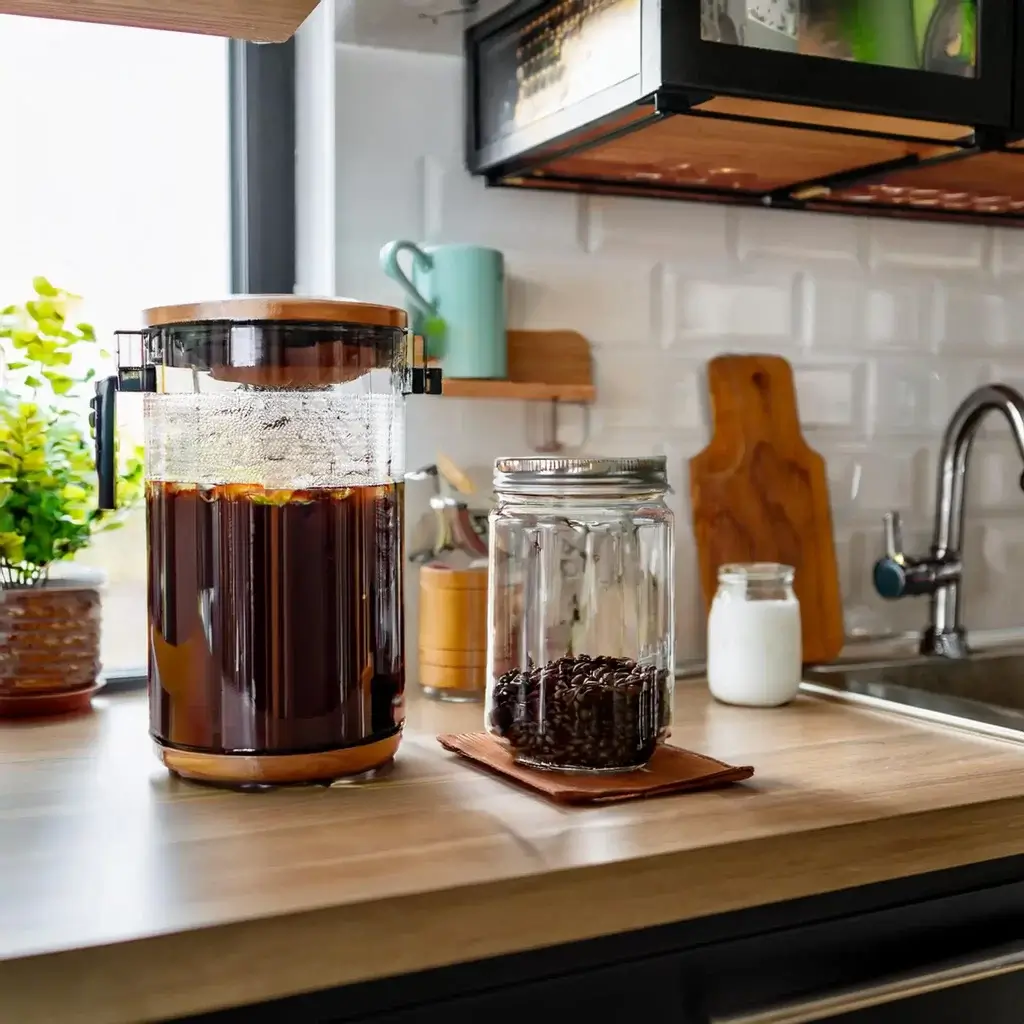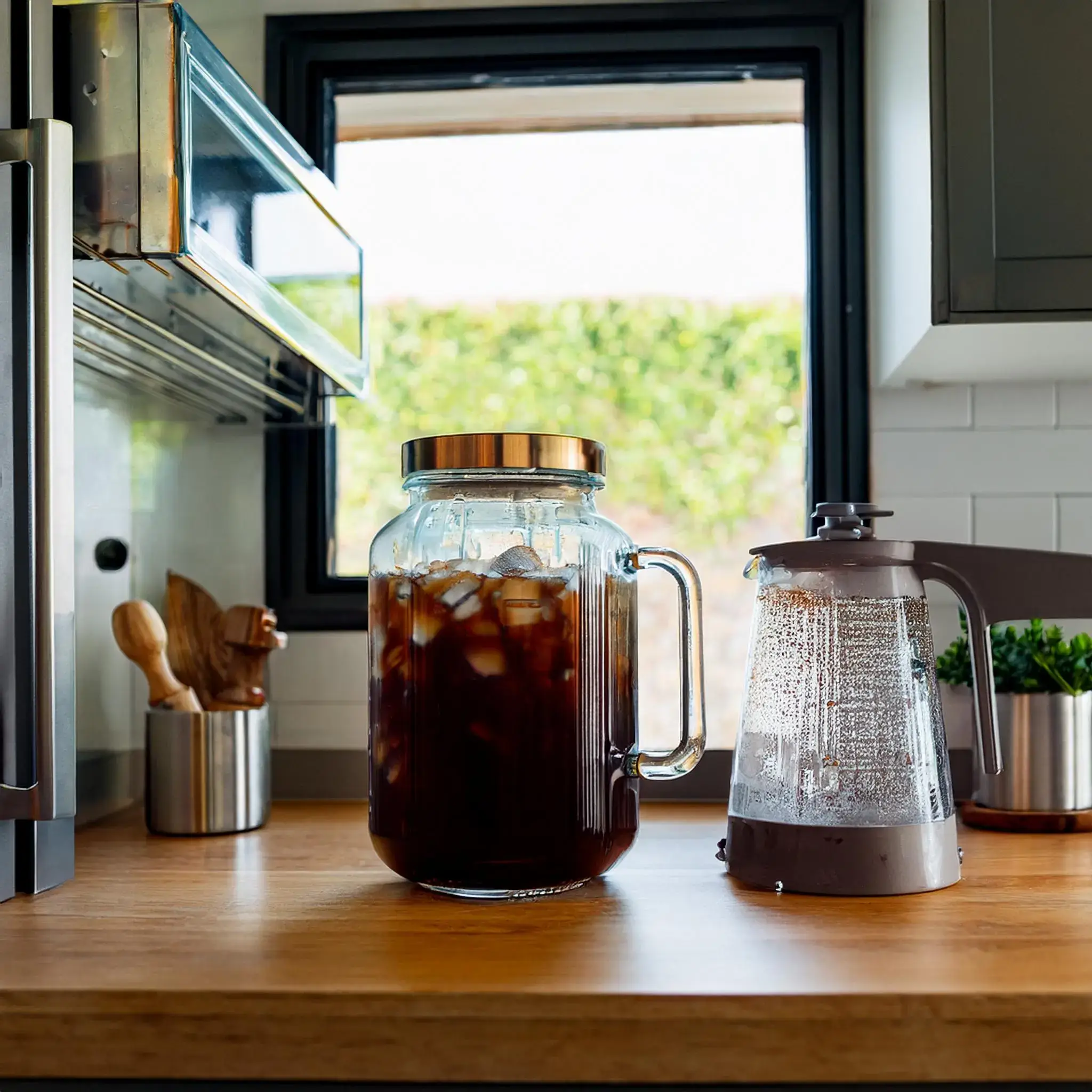The rich, smooth flavor of cold brew coffee has captured the hearts of coffee enthusiasts everywhere. But, as with any artisanal craft, the perfect cup requires patience, precision, and a deep understanding of the brewing process. One of the most crucial steps in crafting the perfect cold brew is steeping time – the amount of time the coffee grounds spend mingling with the water. Get it right, and you’re rewarded with a velvety, low-acidity coffee that’s perfect for hot summer days. Get it wrong, and you’re left with a bitter, over-extracted mess. So, how long should you cold brew your coffee? Is it 12 hours, 24 hours, or maybe even longer? Let’s zoom in!
Cold Brew Process
The cold brew process involves a careful balance of time, temperature, and texture to extract rich flavors and oils from coffee beans. Unlike traditional hot-brewed coffee, cold brew is smooth and velvety, achieved through a slow steeping of coarse-ground coffee beans in cold water. This simple method belies the complexity of factors like coffee-to-water ratio, brewing temperature, and steeping duration that influence the final taste. The gradual extraction of flavors and oils during steeping reduces bitterness and acidity, resulting in a refreshing and rich brew. The key question is how long to let this magical process continue.
The Science Behind Cold Brew Steeping Time
The art of cold brew coffee is a delicate dance of time, temperature, and flavor extraction. At the heart of this process lies the steeping time, a crucial factor that determines the final flavor profile of your brew. The science behind cold brew steeping time is rooted in the principles of solubility and diffusion. As the coarse coffee grounds mingle with the cold water, the soluble compounds gradually seep out, infusing the liquid with a rich, velvety flavor. The longer the steeping time, the more oil and sediment are extracted from the beans, resulting in a bolder, more full-bodied brew. However, If the steeping time is too long, the coffee can become over-extracted, leading to a bitter taste. Conversely, a shorter steeping time can result in a brew that is too weak and lacks depth. Understanding the optimal steeping time for your cold brew coffee is essential to unlocking the perfect balance of flavors and aromas.
How Long Should You Cold Brew Coffee?
It depends on your taste preferences. Generally, a cold brew coffee can take anywhere from 12 to 24 hours to reach its optimal flavor. The longer you brew, the stronger and more full-bodied the coffee will be. A 12-hour brew will result in a lighter, more tea-like flavor, while a 24-hour brew will produce a bold, rich coffee. If you’re a beginner, it’s recommended to start with a 16-hour brew and adjust to your taste from there. Remember, the key to a perfect cold brew is to experiment and find the sweet spot that suits your taste buds. So, sit back, relax, and let the brew do its magic.
Is 12 Hours Enough For Cold Brew?
The optimal time for making cold brew coffee is generally considered to be 12 hours. This timeframe is often a topic of discussion among coffee lovers for good reason: it allows the coffee grounds to steep in the water for a sufficient amount of time. However, some argue that 12 hours may not be long enough to completely extract all the flavors and oils from the grounds. It can be seen as a compromise, as it produces a smooth and less acidic coffee that is easy to drink, but may not capture the full complexity of flavors that cold brew is known for. If you prefer a lighter and more refreshing coffee, 12 hours may work for you. On the other hand, if you desire a richer and bolder flavor, you might consider steeping your coffee for a longer period, such as 18-24 hours. Ultimately, the ideal steeping time depends on personal taste preferences, but starting with 12 hours is a good introduction to the world of cold brew coffee.
Can You Cold Brew Coffee Too Long?
Although cold brew coffee is praised for its smooth, low-acidity taste, leaving it to steep for too long can cause it to develop a bitter and unpleasant flavor. Allowing the coffee grounds to steep for an extended period of time results in the release of too many of the coffee’s natural oils and solids into the liquid, leading to an over-extracted brew with overpowering and unbalanced flavors. It is important to find the right balance when cold brewing coffee as steeping for too long can result in a brew that is too intense and bitter. Therefore, it is crucial to keep a close eye on the brewing time to ensure a refreshing and enjoyable cold brew coffee.
Can I Cold Brew For 2 Days?
This is where the flavors of the coffee beans have had just enough time to meld together in perfect harmony, creating a rich, smooth, and velvety-smooth brew. For 2 days, the coffee has extracted just the right amount of flavor and oils from the beans, resulting in a brew that is both full-bodied and incredibly refreshing. The acidity has mellowed out, and the bitterness has been replaced by a deep, satisfying flavor that will leave you wanting more. If you’re looking for a cold brew that’s perfectly balanced, with a flavor profile that’s both complex and approachable, then 2 days is an excellent choice. Just be sure to store your brew in the refrigerator to slow down the extraction process, and you’ll be rewarded with a truly exceptional cup of coffee.
Coffee Beans For Cold Brew

Selecting high-quality coffee beans is crucial for making a flavorful cold brew coffee. Opt for freshly roasted Arabica beans that are suitable for cold brewing, as they offer a sweeter and more nuanced taste compared to Robusta beans. Look for beans that have been roasted to a medium or dark level to enhance the flavors in your cold brew. Popular options include Ethiopian Yirgacheffe, Colombian Supremo, and Brazilian Santos. By using the right coffee beans, you can create a delicious and satisfying cold brew coffee that will please your palate.
Ground Coffee For Cold Brew
For the perfect cup of cold brew coffee, it is important to start with the correct grind of coffee beans. For cold brew, it is recommended to use a coarse grind, similar to kosher salt, to achieve optimal extraction of flavors and oils. A coarse grind also helps prevent the coffee from becoming bitter due to over-extraction. Grinding the beans too finely can lead to clogging in the filter or grinder, causing a messy brewing process. In contrast, a coarse grind allows for even and slow steeping, resulting in a smooth and full-bodied flavor. Taking the time to grind the coffee beans correctly will result in a delicious and refreshing cup of cold brew coffee.
Healthy Cold Brew Coffee
Cold brew coffee offers a rich and smooth taste that is not only enjoyable, but also a healthier option compared to hot-brewed coffee. Its lower acidity makes it ideal for those sensitive to acidic foods and drinks. The cold brew process results in a brew that is lower in caffeine and bitterness, reducing the likelihood of causing jitters, anxiety, and stomach issues. Cold brew coffee also retains antioxidants and other beneficial compounds that are lost in hot brewing, providing protection against cell damage, inflammation, and a boost to the immune system. Given its delicious taste and health benefits, it’s no surprise that cold brew coffee has become a popular choice for coffee enthusiasts.
